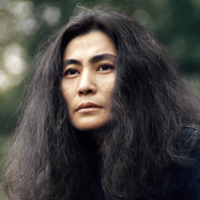Kenshi Yonezu (Hachi) mbti kişilik türü
Kişilik
"Kenshi Yonezu (Hachi) hangi kişilik türü? Kenshi Yonezu (Hachi), MBTI, 4w5 - sp/sx - 458 'de INFP kişilik türüdür, RLUAI, RLUAI, büyük 5, IEI' dır."
repeating a comment: tldr: an actual Ti dominant, in contrast to Kenshi's Fi, helps to reform his formerly feeling-oriented framework into a more logical one seamlessly over the course of several singles. Kenshi needing help regarding his Ti but overall doesnt negatively suppress Ti and in fact compares it to his own Fi, makes his Ti a demon (by mbti) and a role (by socio). I'm not "typing the songs" per se, I'm typing the sentimentality that goes when producing his songs and in so far, all shows very strong Fi vs Ti (eii dominant vs role) with Fi being first and foremost thing that he wants to project onto the world, while Ti is rather not valued in ways of socializing although he's very attuned to his role function due to being isolated throughout youth to early adulthood. Ti as a role function, is typically not valued in social circumstances but manifests in private circumstances, his songwriting is so filled with Ti technicalities and be ignorant of Fe. I could go into great depth about the evolution of his songwriting but to keep it short, I'll pick one example "Pale Blue" where an INTP (in mbti) /ILI (in socio) Yuta Bandoh produces together with EII (Kenshi). Yuta's Ti dominant really works very well in elevating Kenshi's well trained Ti, he does this by analyzing previous songs and find the commonality between each, categorize them as Kenshi's "comfort songwriting zone", trains Kenshi to break out of those comfort zones one by one, and then eventually all of them are broken in Pale Blue. Kenshi has a highly analytical & technical method of songwriting and while he likes to explore variations in style, he usually don't leave his comfort zone of writing in a similar manner back during his Vocaloid days and only changes one or two aspect during exploration. examples of his "comfort zone" as follows, these examples are a result of his Fi base and when he explores his style using Ti, one or two is changed: 1. exclusively use 4/4 or 3/4 rhythm and never change through one song, in rare moment that there's a shift in rhythm it's only for bridging to chorus 2. never use less than one step of tune in each syllable, and never repeat a tune in consecutive syllable 3. rhythmic songwriting or by-the-beat, instead of by chord progression. this is due to the fact that Vocaloid softwares assign one tune to each syllable (robotic, unlike humans fluid voice so he uses intensity in beat/rhythm to communicate song progression) and that kind of become a habit for him to write in that song, even after leaving the Vocaloid scene for good. the fact that he only notices this later by Yuta's help means that he is unconscious in these habits (Si-activating, by mbti, his Si is valued and appreciated, and used optimistically but to support his dominant Fi, so his Si is tertiary) 4. never start and never end a song in abrupt burst or drop, always rising up at the start and toned down/softened at the end. these 4 are examples of Si habits I picked up from listening all the way back from Yankee Album, and the 4 most prominent thing broken by Yuta's help in the song Pale Blue. as a side note, I'd like to note that his extraverted attitude to support Fi, is that he wants people to notice the conscious effort he put in making variation in the usual style that he did his songs in. he wants to appeal to the people's conscious instead of wanting them to see his song as it is and ponder on that. I'd even argue his meeting with Yuta Bandoh over the course of several singles was also by his own choice because he wants to appeal to a broader conscious (ne-si), rather than to try and deepen the societies way of thinking (se-ni) now let's analyze the song Pale Blue and how it breaks every aforementioned rule of Kenshi's songwriting: 1. the rhythm number itself is progressive, not just the intensity. verse ¼, prechorus 2/4, chorus 3/4, 2nd verse 1/4, then 2/4 3/4 and finally to end the song it shifts to 6/8. 2. the prechorus section features a repetition of half-step tunes, which has never been heard in any of his songs 3. due to the constantly changing rhythm number, the song doesn't progress to the next part solely by the change in rhythm, it features a more prominent shifting in chord to signify the next part of the song 4. the song starts immediately with a high note and a burst of instrumental, while it ends in a drop to a sincere, melancholic outro
Biyografi
Kenshi Yonezu (米津 玄師 Yonezu Kenshi, born March 10, 1991) is a Japanese musician, singer-songwriter, record producer and illustrator who began releasing Vocaloid music under the stage name Hachi (ハチ) in 2009. In 2012, he debuted under his real name, releasing music with his own voice.
Kişilik correlate

Fujii Kaze (藤井風)

Yoko Ono (小野 洋子)

Kyary Pamyu Pamyu (きゃりーぱみゅぱみゅ)

Atsushi Sakurai (櫻井 敦司)

Ringo Sheena (椎名 林檎)

Nako Yabuki

Ichiko Aoba (青葉市子)

Hikaru Utada (宇多田ヒカル)








